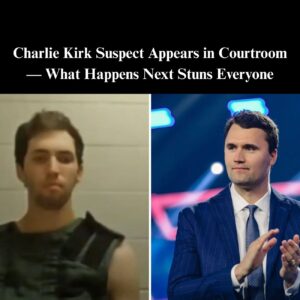Supreme Court Justice Amy Coney Barrett appeared on Hugh Hewitt’s program Monday to promote her new book, but also addressed the assassination of conservative activist Charlie Kirk, offering reflections on the killing and warning about the broader direction of society.
At one point, Hewitt noted that Kirk was killed not long he had joined Coney Barrett at a separate event.
“Two hours after I was done talking to you, my colleague Charlie was murdered. Your reaction to that and to just generally political discourse in the United States, about which you read a lot and listen to a lot?” he asked.
“That was horrific. I was at Notre Dame shortly after I left you at the Nixon Library, and the mood on campus was very somber. I mean, for the father of two young children and a husband to be murdered in cold blood was a tragedy and certainly sobering for the nation,” Coney Barrett responded.
“And I think it is a sign of a culture that has– where political discourse has soured beyond control and something that we need to really pull back,” she continued. “I mean, obviously, well, I assume that the person who murdered Charlie Kirk was mentally ill, but nonetheless, you know, to create a culture in which political discourse can lead to political violence is unacceptable in the United States.”
Hewitt replied that Coney Barrett quoted “G.K. Chesterton, as well as his brother, on page 38 of Listening to the Law.”
“The two argued incessantly but never quarreled. You continued, ‘A good argument involves logic and a search for truth. A quarrel is an effort to tear down your sparring partner. Sparring with intellectual opponents is the way to hear the other side. Shunning others just because they disagree with you is also a recipe for a lonely and ultimately unhappy life,’” he said before asking: “Do you think that people are going to hear that message more clearly now?”
“I really hope that the assassination of Charlie Kirk is a turning point for us as a society where we look and see where things have come. Uh, the point at which we’ve come to in the United States,” she replied. “I mean, there’s a big difference. I see two dangers that that Chesterton passage that you just read gets at. One is to silo ourselves so that we don’t engage with the other side.”
She then noted that Kirk was all about engaging his political rivals in open debate, a cornerstone of his conservative activism.
“You know, that’s the opposite of what Charlie Kirk did. He consistently engaged the other side,” she told Hewitt. “I think the other message in that passage is that when you do engage the other side, we’re engaging ideas and we’re not trying to attack or tear down people.
“And there’s a huge difference between the two. And I think those who fall into attacking people primarily do it verbally and not physically. But too often, I guess we’re now seeing that verbal attacks can spill over into something more sinister,” she said.
Kirk, 31, founder of Turning Point USA, was assassinated last week during a campus speaking event at Utah Valley University, sparking national outrage, a massive manhunt, and renewed debate over political violence in America.
He was delivering remarks under a tent to a crowd of roughly 3,000 students and supporters on September 10 when a sniper-style shot struck him in the neck. He was rushed to a nearby hospital but died shortly afterward.





